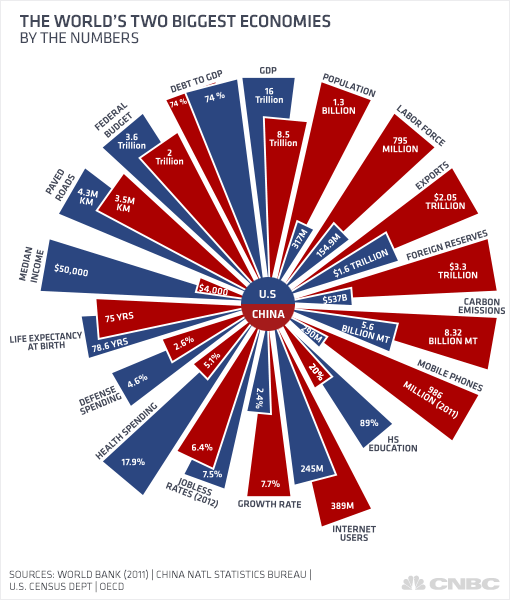“Who’s afraid of China? Everyone apparently.
As China’s economic might grows, trading partners from Europe to Asia to the U.S. are crying foul, some louder than others.
But growing domestic tensions and internal economic imbalances are forcing Chinese leaders to overhaul the very economic model that has served them so well for the past decade.
“China’s economic policymakers are facing a crunch moment in the next few years because the economic model that has served them well for the past decade is no longer working,” said Mark Williams, chief Asia economist at Capital Economics.
The new blueprint for the world’s second largest economy—just now taking shape—promises to transform China’s relations with U.S. and the rest of the world.
This week’s upcoming summit between President Barack Obama and newly installed Chinese President Xi Jinping comes as an emboldened new Chinese leadership seeks to establish a larger role in world trade. As growth in the developed world slows, China’s global ambitions have drawn fire from its trade partners.
The latest U.S. complaint centers on China’s state-sponsored theft of trade secrets, an issue that is expected to top Obama’s agenda at Friday’s meeting in California.
The U.S.-China summit follows a series of announcements by the new Beijing regime aimed at liberalizing the state-run economy, relaxing regulations, allowing market forces to set interest and exchange rates and encourage greater competition from privately owned companies. Led by Xi and Premier Li Keqiang, the new leadership—barring some catastrophe—is expected to rule for the next 10 years.

If those reforms succeed, they would also transform China’s model of state-sponsored capitalism in ways that could level the playing field with trading partners like the U.S….”

![[image]](http://si.wsj.net/public/resources/images/P1-BL772_CDO_NS_20130604185705.jpg)
